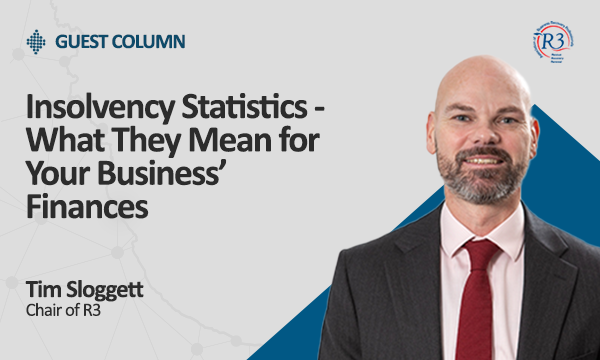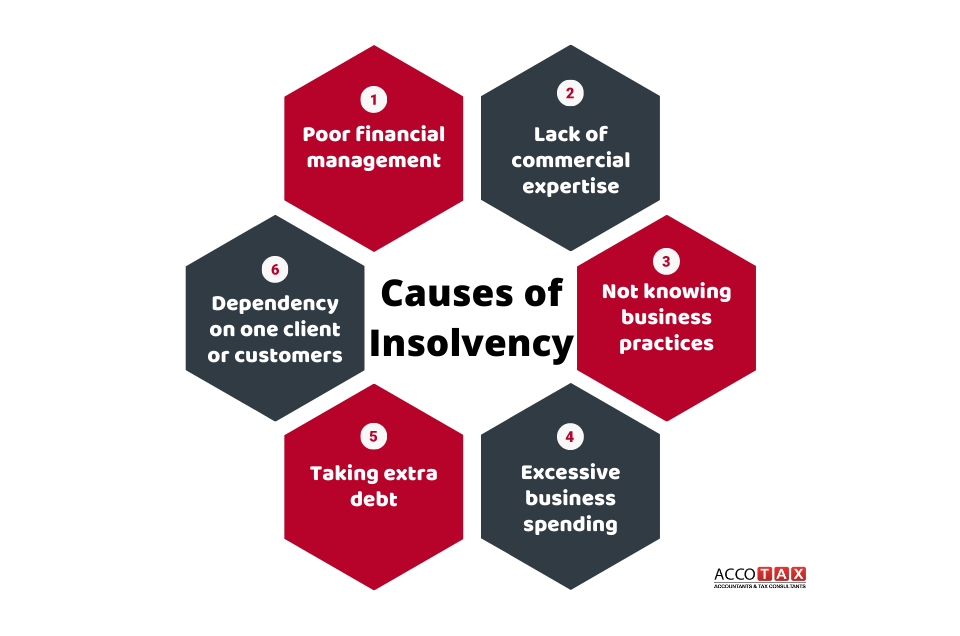4 Easy Facts About Insolvency Practitioner Explained
Wiki Article
How Insolvency Practitioner can Save You Time, Stress, and Money.
Table of ContentsThe Facts About Insolvency Practitioner RevealedGetting The Insolvency Practitioner To WorkGetting The Insolvency Practitioner To WorkSee This Report on Insolvency PractitionerNot known Facts About Insolvency PractitionerInsolvency Practitioner Fundamentals ExplainedRumored Buzz on Insolvency Practitioner
Insolvency is when responsibilities are higher than the worth of the firm, or when a borrower can not pay the debts they owe. A business can end up being insolvent due to a number of circumstances that bring about poor money circulation. When confronted with insolvency, a service or person can call lenders straight and restructure financial debts to pay them off.Service owners may speak to lenders straight and restructure financial obligations right into more convenient installments. Financial institutions are usually responsive to this technique due to the fact that they want to be settled and avoid losses, also if the repayment is on a delayed schedule.
Insolvency Practitioner Fundamentals Explained
The owner produces a proposition detailing just how the debt might be restructured making use of expense decreases or other prepare for assistance. The proposal reveals financial institutions how the service may produce sufficient capital for lucrative operations while paying its financial debts. Typically, a forgiven financial debt may be taken into consideration income by the Irs (IRS).
All About Insolvency Practitioner
When operations cease, so does the business's revenue (Insolvency Practitioner). Some business come to be bankrupt since their items or solutions don't evolve to fit consumers' altering requirements.Expenses go beyond profits and expenses remain unpaid. Kinds of bankruptcy include cash-flow insolvency and balance-sheet bankruptcy. Cash-flow insolvency happens when a firm has the possessions to cover their financial debts but they are in the incorrect type, such as property rather of liquid funds. Balance-sheet bankruptcy, on the other hand, suggests an absence of possessions in any type of kind to cover financial debts.
The internal revenue service states that an individual is financially troubled when the overall liabilities go beyond total assets. A insolvency, on the various other hand, is an actual court order that depicts exactly how an insolvent person or company will settle their creditors, or just how they will certainly market their properties in order to make the settlements.
The 5-Second Trick For Insolvency Practitioner

Debt consolidation is when you combine multiple finances right into one brand-new car loan, usually to achieve better terms. Insolvency is not the like insolvency, although a business that has come to be insolvent may declare insolvency. Insolvency is the state of not being able to pay your commitments while personal bankruptcy is a legal process to discharge your financial debts.
Recognizing the variables that can result in insolvency, such as overspending, can help you prevent bankruptcy and its consequences.
The Best Guide To Insolvency Practitioner
It is well recognized that directors and policemans of companies (and managers of restricted obligation firms) owe fiduciary duties to their companies and their shareholders (or participants). These fiduciary obligations are specified by state statutes and, though there are variants from one state to another, they commonly include a task of commitment and a task of care.
The duty of care calls for supervisors and policemans to exercise diligence, to make enlightened decisions, and to act in good faith to make Source sure that their actions remain in the finest rate of interest of the business. Past the scope of this conversation, some states enable these duties to be restricted either by so keeping in mind in the organizational records or complying with various other requirements.
The Basic Principles Of Insolvency Practitioner
Many states define insolvency in 2 ways( 1) when a firm's obligations end up being above the amount of its properties or (2) when the firm becomes unable to pay its financial obligations as they become dueand welcome both meanings (Insolvency Practitioner). The change in responsibilities occurs since when a firm is insolvent, there is no value in the business beyond that owed to the firm's lenders to make sure that the equity owners no much longer have a financial risk in the companyBeware about giving shareholders favoritism at the cost of lenders (e.g., authorizing and funding a reward or a supply redemption). Beware concerning preferential treatment between courses of shareholders. Make affordable efforts to learn all the realities before taking a details course of action; directors need to genuinely think official website that any choices made remain in the finest rate of interests of the firm in its whole (i.e., decisions will certainly be examined in hindsight in light of the result of such actions on the firm).
In any personal bankruptcy or insolvency proceeding, settlements made to specific lenders at the cost of other lenders can be clawed back, especially if there is some connection in between the company and the financial institution. Consider proposing at a yearly shareholder meeting (or any kind of various other conference of shareholders) a resolution attesting that all previous business choices and activities taken by the supervisors and officers of the firm were absorbed excellent belief after an exercise of practical care.
All about Insolvency Practitioner
Completely divulge any type of personal or company relationships with events beyond of deals entailing the corporation to stay clear of the appearance of a dispute of passion. In informative post evaluating potential fund increasing purchases or a sale of possessions of the distressed company, realize that these purchases may be scrutinized later because of any subsequent expansion of directors' fiduciary tasks to consist of financial institutions.Report this wiki page